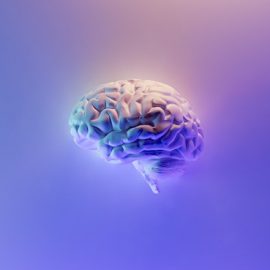

This article is an excerpt from the Shortform book guide to "Maybe You Should Talk to Someone" by Lori Gottlieb. Shortform has the world's best summaries and analyses of books you should be reading.
Like this article? Sign up for a free trial here .
Who is Erik Erikson? How is Erik Erikson’s Psychosocial Theory of development different from Freud’s Psychosexual theory?
Erik Erikson (1902-1994) was a German-American psychologist and psychoanalyst who is best known for his theory of psychosocial identity development. Erik Erikson’s Psychosocial Theory marked a shift from Freud’s Psychosexual Theory in that it conceptualized psychosocial development across the entire lifespan instead of just childhood.
Here is an overview of Erik Erikson’s Psychosocial Theory.
Erik Erikson: Psychosocial Theory of Development Through the Lifespan
Erik Erikson’s Psychosocial Theory posits that personality takes shape in a predetermined order through 8 stages of psychosocial development. Each stage comes with a crisis that the person must face before moving on to the next.
1. Infant: trust vs. distrust—at this stage the infant is almost totally helpless and is completely dependent upon his or her caregivers. Whether those caregivers provide reliable and adequate care for the infant will have a large impact on his ability to trust people later in life.
2. Toddler: independence vs. doubt—the child is beginning to discover his own abilities, but if overly criticized or coddled during this time, he may come to doubt his self-sufficiency.
3. Preschooler: drive vs. guilt—the child will start interacting with others, inventing various forms of play and asking many questions. However, if these tendencies are repressed or if the child is treated as a nuisance, he may develop feelings of guilt around “bothering” others.
4. School age: competence vs. incompetence—for perhaps the first time, the child’s skills are being rigorously developed and tested in a controlled environment. His self-esteem will depend in large part on whether he is seen as competent and encouraged or discouraged by peers and adults.
5. Adolescent: identity vs. confusion—at this stage the child is starting to develop a sense of personal identity. If he/she isn’t able to establish a clear role—such as a person who doesn’t know what he wants to do when he grows up—this can lead to confusion about his identity throughout his life.
6. Young adult: intimacy vs. loneliness—the person is beginning to think about forming long-term, intimate bonds with people other than family members. If the person shies away from commitment or fears intimacy, it can lead to an isolated and lonely life.
7. Middle age: creativity vs. stagnation—the person experiences a growing desire to leave something behind that will outlast him or her. This could be a great scientific discovery, a famous book, or even a child. Someone who doesn’t feel accomplished, or doesn’t believe that he’s left a mark on the world, may experience a lack of connection to or interest in the world around him.
8. Old age: ego integrity vs. despair—as the end of life approaches, the person looks back at what he or she has done (or not done). Someone who is satisfied with his life will feel what Erikson calls integrity: acceptance of his life as a whole and a sense of completeness.

———End of Preview———
Like what you just read? Read the rest of the world's best book summary and analysis of Lori Gottlieb's "Maybe You Should Talk to Someone" at Shortform .
Here's what you'll find in our full Maybe You Should Talk to Someone summary :
- How a psychotherapist found herself in need of therapy
- How the therapist sees her own fears and feelings reflect in her patients
- Why you have to be ready to accept uncertainty if want to enjoy life






